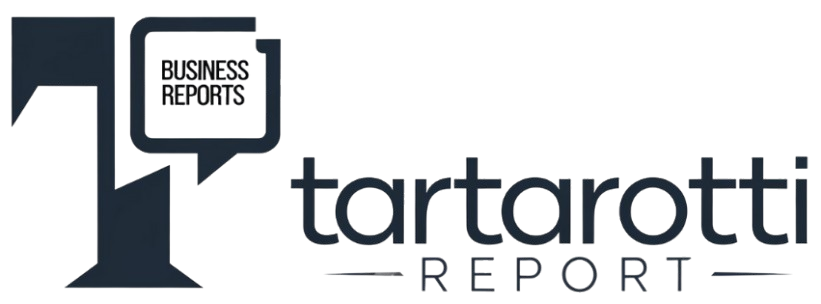Introduction:
In the dynamic landscape of offshore jurisdictions, the British Virgin Islands (BVI) stands out as a crucial player in the global financial services industry. With an impressive estimate of US$1.4 trillion in assets held by BVI companies, equivalent to 1.5% of global GDP, the BVI positions itself as a true super-connector to global markets. This article explores the strategic role of the BVI, its competitive advantages and the opportunities it presents for entrepreneurs, consultants and financial professionals looking to optimize their international strategies.
According to the Pragmatix report, “Beyond Globalization: The BVI’s Contribution to the Global Economy”, 57% of BVI business originates from China and the Asia-Pacific region, while a further 20% comes from Latin America and the Caribbean. These figures underline the growing importance of the BVI as a global financial hub, connecting diverse markets and fostering cross-border economic growth.
In this comprehensive guide, we will unravel the nuances of the BVI as an offshore jurisdiction, providing practical insights and advanced strategies to make the most of the opportunities this jurisdiction offers. Get ready for a journey that will transform your understanding of international business structuring and global estate planning using the BVI as a platform.
Part 1: Ready to Roll 🚀 – Basic Strategies and Practical Actions
Part 1, “Ready to Roll”, offers practical actions and immediate advice for entrepreneurs who need quick and effective guidance.

- First Steps in the BVI: Before diving into advanced strategies, it’s essential to establish a solid foundation:
- Understand the basic concept: The BVI offers a flexible corporate structure, known as a BVI Business Company, ideal for holding companies, international investments and asset protection.
- Familiarize yourself with the regulatory environment: The BVI is known for its robust regulatory regime, overseen by the BVI Financial Services Commission (FSC).
- Identify the key benefits: Advantages include confidentiality, tax efficiency and corporate flexibility.
- Choose the right type of structure: Decide between options such as general purpose companies, investment funds or estate planning structures.
- Develop Strategies for Using the BVI: When structuring your business or estate plan in the BVI, consider:
- Long-term goals: Align the BVI structure with your global expansion or wealth preservation goals.
- International compliance: Be aware of global reporting obligations such as CRS and FATCA.
- Exit strategy: Plan in advance how you might restructure or liquidate your BVI assets if necessary.
- Integration with other jurisdictions: Consider how the BVI structure will integrate with your operations in other countries.
- Practical Implementation of BVI Structures: To effectively establish a presence in the BVI:
- Choose a reliable registered agent: Select a reputable corporate service provider in the BVI.
- Clearly document the purpose: Articulate and document the legitimate business purpose of your BVI structure.
- Establish robust governance: Implement sound corporate governance practices, including proper record-keeping.
- Keep up to date: Stay informed of regulatory and legal changes in the BVI that may affect your structure.
Part 2: Deep Dive 🤿 – Technical Deep-Dive into Advanced Strategies
Part 2, “Deep Dive”, provides in-depth analysis for those who wish to delve into the technical and complex aspects of international finance.

- Detailed Analysis of the BVI’s Competitive Advantages: Explore the characteristics that make the BVI a leading offshore jurisdiction: a) Common Law Legal System: Based on English law, offering predictability and familiarity for international investors. Example: A Brazilian company establishes a holding company in the BVI for its international operations, benefiting from the legal certainty and flexibility of the common law system. b) Advanced Financial Infrastructure: Robust banking system and presence of global financial institutions. Case: A Mexican family office uses the BVI as a platform to manage global investments, taking advantage of the sophistication of the financial services available. c) Favorable Tax Regime: Absence of taxes on capital gains, dividends and interest for offshore companies. Application: An Argentine business group structures its international operations through the BVI, optimizing its global tax efficiency.
- Technological and Regulatory Innovations in the BVI: The BVI is at the forefront of innovation in the offshore sector:
- Virtual Asset Service Providers (VASP) Regime: Implemented in 2023, it offers a clear regulatory framework for cryptoasset and blockchain companies.
- Electronic Registration System: Enables efficient incorporation and administration of companies.
- Digital Compliance Tools: Use of advanced technologies for KYC (Know Your Customer) and AML (Anti-Money Laundering).
- Blockchain for Share Registration: Exploitation of blockchain technology for registering and transferring shares in BVI companies.
- Advanced BVI Utilization Strategies: Develop sophisticated approaches to maximize the benefits of the BVI: a) Multi-jurisdictional Investment Structures:
- Use the BVI as a central hub to coordinate investments across multiple jurisdictions.
- Implement master-feeder fund structures to optimize tax and operational efficiency.
b) International succession planning:
- Explore the use of VISTA trusts (Virgin Islands Special Trusts Act) for business succession.
- Integrate BVI companies into broader estate planning structures.
c) Advanced Asset Protection:
- Use combinations of trusts and BVI companies to create layers of asset protection.
- Explore the use of BVI firewall provisions to strengthen protection against foreign litigation.
d) Exit and Restructuring Strategies:
- Plan ahead for possible exit or restructuring scenarios.
- Use the BVI’s flexible merger and acquisition laws to facilitate complex corporate transactions.
- Challenges and Ethical Considerations: Proactively address the challenges associated with using structures in the BVI:
- Global Compliance: Keep up to date with changes in international regulations, such as the OECD and FATF initiatives.
- Reputation and Transparency: Adopt a proactive transparency approach to mitigate reputational risks.
- Economic Substance: Be prepared to demonstrate real economic substance in your BVI operations, as required by recent regulations.
- Business Ethics: Align the use of BVI structures with sound ethical principles and responsible business practices.
Future Trends and Opportunities in the BVI
- Evolution of the Regulatory Scenario: a) Implementation of Beneficial Ownership Registers:
- BVIs are moving forward with the implementation of a beneficial ownership registry system.
- This move aims to balance demands for greater transparency with the need for client privacy.
b) Improvement of Anti-Money Laundering (AML) Regulations:
- Constant updating of AML policies to align with the latest global standards.
- Implementation of advanced technologies for monitoring suspicious transactions.
c) Adaptation to Global Tax Initiatives:
- Continuous evolution to adapt to OECD initiatives, such as BEPS (Base Erosion and Profit Shifting).
- Development of structures that meet the requirements of economic substance without compromising efficiency.
- Emerging Opportunities in Global Markets: a) Expansion in Asia-Pacific:
- Strengthening relations with emerging Asian markets other than China.
- Development of specific financial products to meet the needs of Asian entrepreneurs and investors.
b) Bridge for investment in Latin America:
- Positioning the BVI as a preferred platform for foreign investment in Latin America.
- Facilitating joint ventures and partnerships between Asian and Latin American companies.
c) Support for the Global Digital Economy:
- Creating an enabling environment for startups and global technology companies.
- Development of specific regulations to support digital and decentralized business models.
- Innovations in Corporate and Investment Structures: a) Sustainable Investment Vehicles:
- Development of specific structures for ESG (Environmental, Social, and Governance) investments.
- Creation of green and social impact funds using the flexibility of BVI laws.
b) Hybrid structures for the New Economy:
- Innovation in corporate models that combine elements of traditional companies and DAOs (Decentralized Autonomous Organizations).
- Adaptation of the legal framework to accommodate new forms of blockchain-based corporate governance.
c) Tokenized Investment Platforms:
- Facilitating the creation of investment platforms that use tokens to represent traditional assets.
- Regulation of Security Token Offerings (STOs) to attract global investment.
- Future Challenges and Mitigation Strategies: a) International Pressure for Greater Transparency:
- Development of technological solutions to facilitate the exchange of information while maintaining client confidentiality.
- Proactive engagement with international organizations to shape future policies.
b) Competition from Other Offshore Jurisdictions:
- Continued investment in digital and legal infrastructure to maintain competitive advantage.
- Focus on specialization in key sectors such as fintech, blockchain and sustainable investments.
c) Global Geopolitical and Economic Risks:
- Diversification of the client base to reduce dependence on specific regions.
- Development of contingency plans for scenarios of global instability.
- The Role of the BVI in the Post-Pandemic Global Economic Recovery: a) Facilitating Corporate Restructurings:
- Use of the BVI’s legal flexibility to assist companies in restructuring processes.
- Development of specific structures to support the recovery of heavily impacted sectors.
b) Attracting Investment to Developing Economies:
- Positioning the BVI as a secure channel for directing investments to infrastructure and development projects in emerging economies.
- Creation of specialized investment vehicles for economic recovery projects.
c) Support for Innovation and Global Entrepreneurship:
- Establishment of incentive programs for startups and scale-ups that use the BVI as a base for global expansion.
- Collaboration with international accelerators and incubators to attract innovative companies.
Conclusion
The British Virgin Islands continues to evolve and adapt, maintaining its position as a leading offshore financial center and a super-connector to global markets. The jurisdiction demonstrates a remarkable ability to balance demands for greater transparency and regulation with the need to maintain an attractive environment for international business and investment.
The BVI’s future as an offshore jurisdiction will be shaped by its ability to navigate global regulatory challenges while capitalizing on emerging opportunities in sectors such as fintech, sustainable investment and the digital economy. Continued innovation in corporate and investment structures, coupled with a strong commitment to compliance and international best practice, will be crucial to maintaining the BVI’s relevance and attractiveness on the global financial stage.
For professionals and clients considering using BVIs in their global strategies, it is essential to adopt an informed and proactive approach. This includes keeping up to date with regulatory changes, exploring the new opportunities offered by the jurisdiction and working closely with specialist advisors to ensure that BVI structures are aligned with business and compliance objectives.
As the world emerges from the pandemic and faces new economic and geopolitical challenges, BVIs have the potential to play a significant role in facilitating global economic recovery and promoting international investment. Its ability to adapt quickly to changing market and regulatory conditions positions the jurisdiction as a valuable partner for companies and individuals seeking to successfully navigate the complex international financial landscape.
Ultimately, the BVI’s continued success will depend on its ability to maintain a delicate balance between innovation, compliance and business attractiveness. Those who are able to seize the opportunities offered by this dynamic jurisdiction, while adhering to the highest standards of ethics and compliance, will be well placed to thrive in the ever-evolving global landscape.
To stay at the forefront of these trends and opportunities, consider attending our regular educational events, including webinars, workshops and conferences dedicated to the latest innovations and best practices in the use of offshore structures in the BVI. These events offer not only valuable insights, but also unique networking opportunities with industry experts and peers.
Remember, the offshore landscape is constantly evolving, and long-term success depends on adaptability, up-to-date knowledge and expert advice. The BVI, with its rich history and forward-looking outlook, continues to offer fertile ground for those looking to optimize their global financial and business strategies.
FAQs
- Q: What are the main benefits of using a structure in the BVI compared to other offshore jurisdictions? A: The BVI offers a unique combination of corporate flexibility, tax efficiency, strong asset protection and a legal system based on English common law. In addition, its established reputation and wide network of specialized professionals facilitate global operations.
- Q: How do recent global transparency initiatives affect structures in the BVI? A: The BVI has adhered to international standards such as CRS and FATCA. While this has increased reporting requirements, the jurisdiction maintains a balance between confidentiality and compliance, continually adapting to maintain its attractiveness.
- Q: What is the typical process and cost of establishing a company in the BVI? A: The process is relatively quick and efficient, usually taking 1-2 working days. Costs vary, but typically include incorporation fees (around $450), annual maintenance fees (around $450) and registered agent fees.
- Q: How are BVIs adapting to the demands of the cryptoasset and blockchain sector? A: With the introduction of the VASP regime in 2023, the BVI has created a clear regulatory environment for crypto-asset companies, positioning itself as an attractive jurisdiction for fintech and blockchain innovations.
- Q: What are the key considerations for maintaining the compliance of a BVI structure in the long term? A: Proper record keeping, compliance with economic substance requirements where applicable, regular reporting as required by global regulations, and periodic reviews of the structure to ensure continuous alignment with evolving objectives and regulations.

Member of the IMA (Institute of Management Accountants) – USA
Member of the AICPA (American Institute of CPAs) – USA
Member of AAII (American Association of Individual Investors) – USA
Member of AAA (American Accounting Association) – USA
Member of the FMA (Financial Management Association) – USA
These associations not only attest to Kleyton’s commitment to professional excellence, but also ensure that his knowledge is always at the forefront of international financial and accounting practices.
With a robust academic background, including a Bachelor’s degree in Accounting and MBAs in International Finance and Accounting, as well as in International Business, Kleyton offers a unique and comprehensive perspective on the global business landscape.
Through the Tartarotti Report, Kleyton invites visionary entrepreneurs and executives to connect, explore opportunities for collaboration and, together, successfully navigate the complex world of international corporate finance.







